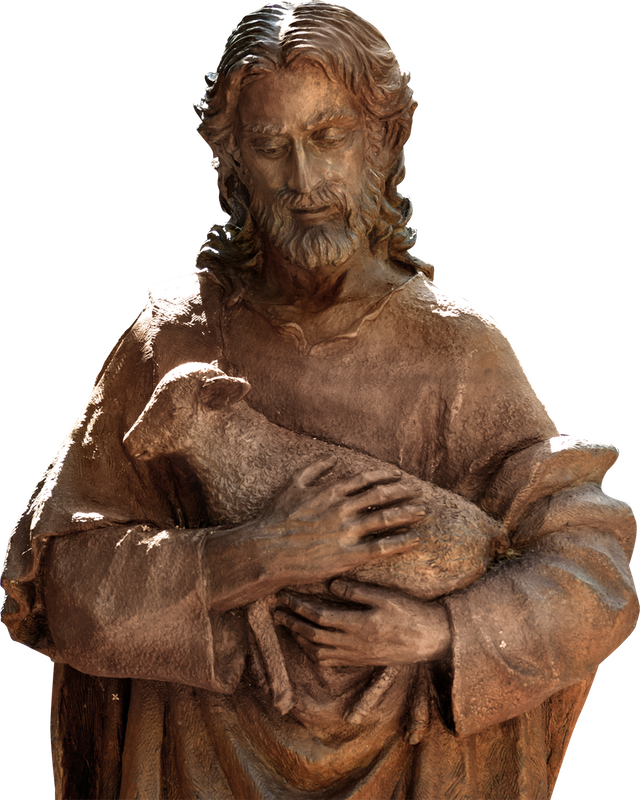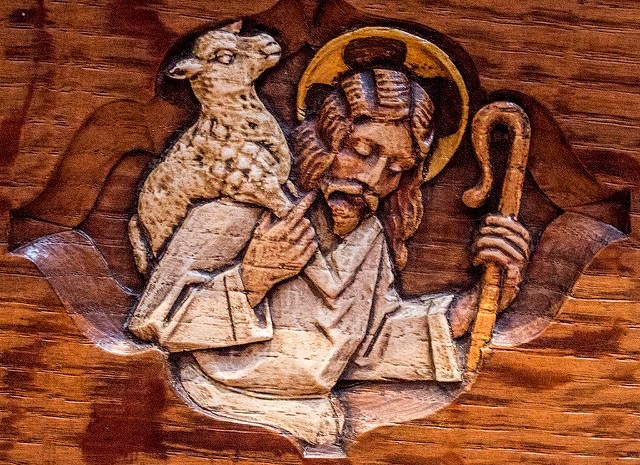CYCLE C. EASTER. WEEK 4
REFLECTION
– By Fr Ugo Ikwuka
Archway, London
The Fourth Sunday of Easter is designated as “Good Shepherd” and “Vocations” Sunday. On this Sunday, we are invited to reflect on the meaning of God’s call and to pray for vocations to the various ministries in the Church.
Yet, it will be mistaken to narrow “vocation” only to those who feel called to the priesthood or religious life. Every baptised person has a vocation and is called by God to play a specific role in the Christian community.
In his Letters, St Paul recognizes the variety of gifts or graces that each one has received (1Corinthians 12). He compares the Christian community to the human body, which consists of a large number of separate organs with unique functions, yet all belong to and work for the same body. He asks, “If the whole body were an eye, where would the sense of hearing be? If the whole body were an ear, where would the sense of smell be? The eye cannot say to the hand, ‘I don’t need you!’ And the head cannot say to the feet, ‘I don’t need you!’… And if one part suffers, every part suffers with it; if one part is honoured, every part rejoices with it. You are the body of Christ and each one of you is a part of it.”
Paul further notes that spiritual gifts are given to the individual “for the common good”. They are not just for my material or even spiritual welfare. The tendency is to use our gifts and positions to make a living for ourselves even at the expense of others. Jesus could miraculously multiply bread but he did so, not to feed himself but to feed others for whom he felt compassion because he saw them as “sheep without a shepherd” (Matthew 9:36). Indeed, the ideal image of the shepherd finds its complete realization in Christ and this Sunday’s Gospel highlights some of the characteristics of Jesus the Good Shepherd.

First is the reciprocal knowledge that the sheep and shepherd have: “My sheep hear my voice and I know them and they follow me.” Jesus knows his own “by name” i.e. to the core of their being – their joys and their hopes, their griefs and their anxieties and he is with them through it all. Jesus only knows how to count to one, and that one is each of us. He loves and treats each as though they were the only one who existed for him. Secondly, he gives his life to his sheep and for his sheep, and no one can take them from him.
The history of Christianity is replete with many who were persecuted for their faith; people who had everything taken from them. But no one could take God’s life from them. They are assured of eternal life which simply means knowing Jesus and being known by him. Even in our time, we are aware of the many who are being persecuted because they are Christians. They may be assaulted or even killed, but the eternal life of God in them can never be wrestled away from them. As the Second Reading affirmed, they have been washed in the Blood of the Lamb.
Thus, the Good Shepherd provides us with a perfect model for pastoral ministry. Parish Priests are rightly designated as pastors in some local churches, which imply shepherding. When Christ authoritatively claims that he is the Good Shepherd, he is presenting himself as model of how we should conduct our Christian life of service.
Hence, the question is: how do you express your Christian faith through your daily work; as a parent, teacher, civil servant, lawyer, carpenter, police officer, doctor, firefighter, businessperson, an engineer, an architect? Disturbingly, most people decide first on their ‘career’ before asking how they can be a good Christian (if they ever ask).
Majority of Christians, and I dare say especially Catholics, do not demonstrate a sense of ownership of their church and pastoral community. They are at best Sunday – Sunday parishioners who think that the church belongs to the priest so they just step in and out. Yet, strictly speaking, the church belongs more to the resident parishioner than the priest whose days are numbered. The theme of vocations and Good Shepherd calls us to reflect on how God is asking me to make a meaningful contribution of myself (not just my money) to the building up of my Christian community.
Do we see our talents and abilities, our jobs and professions, as a means to serve others also or simply as a means to make a living for ourselves alone? Interestingly, one of the leading theories of leadership in contemporary business and human relations is the Servant Leadership, which is traced directly to Jesus Christ.
The theory proposes that if a leader makes it a priority to identify and meet followers’ needs, serving rather being served, that leader creates an environment of trust, cooperation and reciprocal service, and ultimately higher performance.

We can all draw inspiration from Jesus our kind and loving Good Shepherd. We can all, like him, become guides, unifiers and protectors of those in our care. Thus, while we pray for genuine vocations to the ministerial priesthood, religious life and other ministries in the Church, individually, each needs to reflect on what their particular calling is and how they can respond to it for the wellbeing of the community.
There is really no “vocation crisis” in the sense that everyone has a vocation. Every single person has been and is being called by God through the Holy Spirit to offer their special gifts to the rest of the community.
There is a crisis only in the sense that many are not aware of their vocation or, if they are, they are not responding to it.
It is essential that we ask ourselves at all times: What does God want me to be? What are my particular gifts? How can I offer these gifts in service to the Christian and wider community?
It is in discovering and fulfilling the role to which God has called us that we can begin to live fulfilled.




